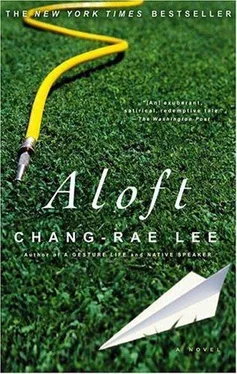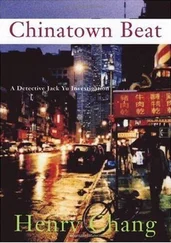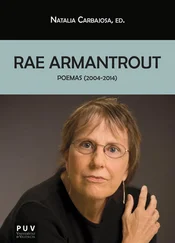And while I know Jack was never headed for a fancy law associate's position like Richie's Ivy League minions, or was an intellectual sort like his sister, I'm damn sure that he could have made a perfectly fine sales rep for one of those big pharmaceu-tical companies, or a valued young executive in some corporate human resources department, taken full advantage of his athlete's natural poise and fealty to the team for the cause of gen-teel and estimable profit. That would have been good by me, for sure, though I must acknowledge, too, that I never pushed Jack away from Battle Brothers too assiduously, namely because—
surprise, surprise — I actually didn't mind the idea of his taking over someday, if that somehow meant Pop would get and stay off my back about The Future, thereby committing the sin of tendering one generation's dreams for the illusory expectations of another, which is no doubt a practice wretched, and shameful, if time-honored.
I ' M N O O D L I N G all this about at the moment, or trying not to and failing, sitting here on Pop's made-up bed in his room at Ivy Acres. I'm waiting for the head administrator to drive back in from his home in Cold Spring Harbor after normal business hours and explain to me how an eighty-five-year-old man with limited mobility walks off a twenty-acre campus without a trace and then isn't missed for an entire night and day. He's going to do so because I've threatened his assistant that otherwise he'll be speaking exclusively to a jodhpur-clad partner of Whitehead Bates in the morning, and the duly confused/impressed assistant immediately slipped off to a secure phone and called his boss.
Jack, meanwhile, has gotten it into his head that he's going to drive around the county checking the bus depots and diners and the dozen or so local Starbucks shops because Pop had their coffee once and thought it was a revelation and might now make some kind of crazy coot pilgrimage there, as if he were going to hire on as a barista before he kicked off, which after I considered for a second didn't seem that far-fetched a notion.
Paul has accompanied me to Ivy Acres for moral support, but after an hour of waiting here in Pop's room he's all but talked out on the incompetence of institutional structures and systems and turned on the television instead, switching with the jump button at the commercials between the Discovery Channel (Wild Predators) and HGTV (Before and After renovations).
The combination, as you might expect, proves remarkably soothing to yours truly, as all I need to forget everything else is a good meaty nature channel show where the ants and the termites are about to wage total arthropodan war.
"I only like the Before," Paul says. "At least the old place had some wool to it. Some shagginess. Now everything looks as if it's been bikini-waxed."
"Most people like that."
"I guess. What bugs me even more is how they had no qualms about destroying everything, even the good stuff, like that great fireplace."
"That was a beauty."
"Sure it was. You know better than anybody that you can't buy that old brick anymore. And the newel posts of the stair-case. Did you see how that guy took his sledgehammer to those?
He found that pleasurable."
"He was loving it."
"No kidding," Paul says, getting excited, maybe even agitated. "There's no respect anymore. People want what they want and they want it now Nothing comes before them, literally or in time. Everyone is Client Zero."
"Numero Uno," I say.
"Chairman Me."
"A Solo Flyer."
"Exactly," Paul says. "They think they can go anywhere and do anything, as if none of their actions has any bearing except on themselves, like they're in their own mini-biosphere, all needs self-providing, everything self-contained, setting it up like God would do himself. It doesn't matter that there are people on the outside tapping at the glass, saying, 'Hey, hey, I'm here. Look out here.'"
This stops me for a second, as he's striking closer to home than I'd prefer. Then I realize why Paul isn't quite acting like himself, which I assumed had to do with Pop being missing and all of us feeling anxious and moody. He's talking not about me but about his wife, Theresa, who, if you think about it, has done a pretty spiffy job of shutting out any chance of real inquiry, any real debate, who hasn't let by more than a few loose atoms of dissent, the only surprise here being that you'd think her seriously empathic prose-poet husband would have been asked to help steer from the beginning.
Theresa was feeling a bit tired, and so despite her wanting to come along I'd somewhat forcefully suggested she remain back at the house, just in case Pop managed to make his way there. In fact I scolded her, finally getting sick of her merely humoring my opinions. This I feel bad about, as she's looking washed-out of late, as though the blood isn't being fully pumped to all parts of her body. Her coloring is all wrong, her face appearing as if it were lighted from within by an old fluorescent tube, an unsteady flicker in her usually bright eyes. And I should really say A L O F T
she's been feeling tired all the time, though of course not breathing a word of complaint; I've just noticed her lingering a bit, in whatever armchair she's sitting in, or leaning with discernible purpose against the kitchen counter, or sometimes not showing up at all for breakfast, even after Paul goes back to their bedroom to let her know the herbed omelets are ready. In fact I would say she's not eating half the food she normally would, with Paul and me taking up the slack, as evidenced by our sudden fullness of gut and cheek.
Sometime last week I went into their bedroom after they'd gone out to shop for maternity clothes, as I was searching for some of the Cessna manuals in the closet, and noticed crumpled in the wastepaper basket a threefold informational booklet like the kind you see in plastic holders beside the magazines in the doctor's office, though this one you probably got from the doctor himself in the privacy of the exam room. It was a general introduction and overview of symptoms and treatment of non-Hodgkin's disease, which is among the most treatable of cancers, assuming, of course, that it is treated, with some combination of surgery and radiation and chemotherapy, depending on the particular stage and expression of the disease. But the thing that got me was a single-sheet insert that was also crumpled up inside the booklet, titled "Non-Hodgkin's and Pregnancy." This basically outlined what a pregnant woman would normally do, with those in the first trimester advised to terminate the pregnancy and pursue treatment, with those others postponing treatment — and only if the disease were slow-developing-delivering early (32nd to 36th week) by cesarean, then immediately employing a vigorous regimen to attack the disease.
Theresa is just now into her 22nd week, obviously making no plans for anything other than a full-term delivery. It isn't hard to figure out that she's doing none of the recommended above (no matter the progression of the cancer, which might be spreading to who knows where), and judging by how tightly the literature was balled up, is not about to stray from her self-charted course. If I think about it, this episode with Pop has at its best provided a diversion from my children's troubles, diversion being perhaps the most ideal state of existence.
"Perhaps the best thing," Paul says, looking nearly angry now, his fleshy cheeks ruddy with vim, "is that pretty soon we won't have any true Befores, only Afters, shiny and virtual Afters. This host won't have one decent thing left to destroy, and he'll have no choice but to cancel the show."
"Maybe it'll be called After the After," I say.
"After the After doesn't exist," Paul says grimly. "Not for me anyway."
Читать дальше











